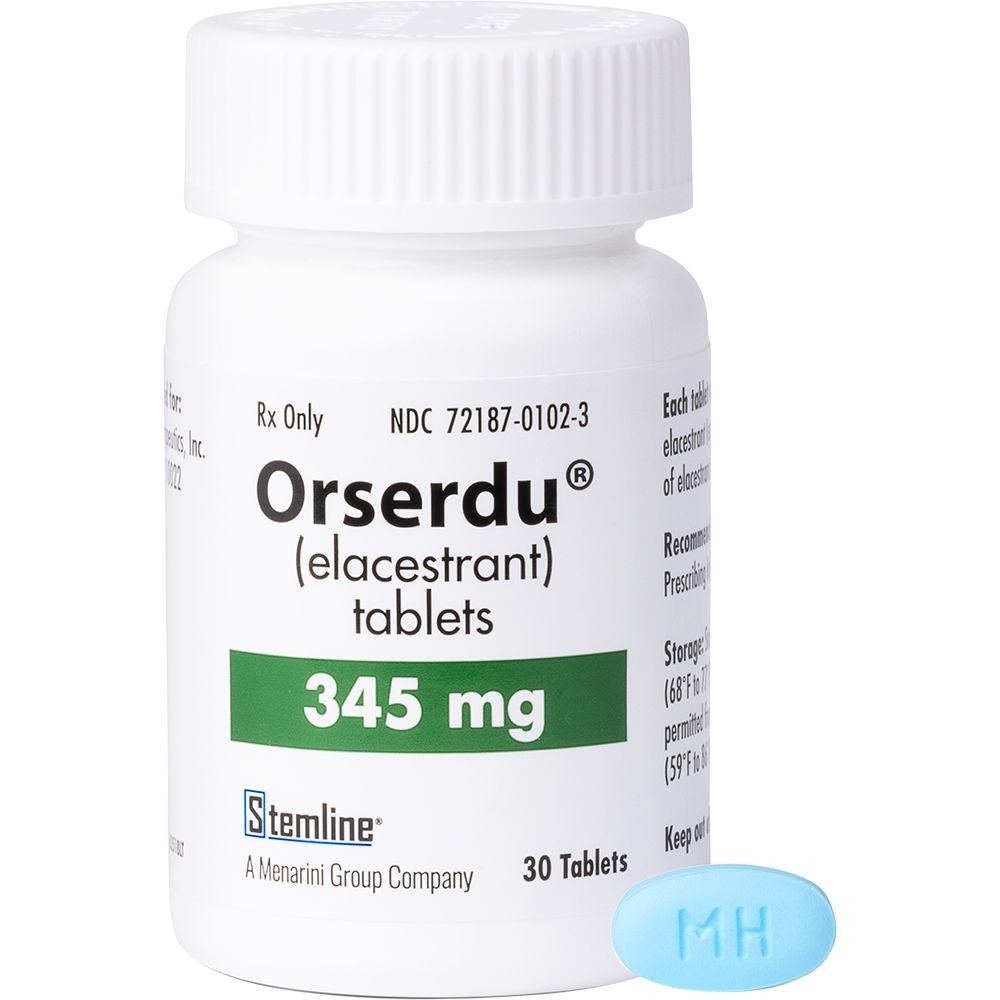
Contents
Orserdu
Orserdu is an estrogen receptor antagonist for treating postmenopausal women or adult men with advanced or metastatic breast cancer. It is used in cases where the cancer has progressed after at least one line of endocrine therapy and is ER-positive, HER2-negative, and ESR1-mutated.
Warnings
- Patients taking Orserdu may experience hypercholesterolemia and hypertriglyceridemia. Monitor lipid profile before and during treatment.
- Pregnant individuals should not take Orserdu as it can cause fetal harm.
Side Effects
Orserdu may cause increased lipid levels in the blood. Common side effects include musculoskeletal pain, increased kidney function, nausea, decreased appetite, increased cholesterol and triglyceride levels, diarrhea, headache, increased liver function, constipation, tiredness, abdominal pain, decreased red blood cell counts, hot flushes, vomiting, and indigestion or heartburn. Consult your healthcare provider if you experience any serious symptoms or side effects.
Dosage
The recommended daily dosage of Orserdu is 345 mg taken orally with food until disease progression or unacceptable toxicity occurs. Take it at the same time each day and swallow the tablet(s) whole. If a dose is missed for more than 6 hours or vomiting occurs, skip the dose and resume the next day at the usual time.
Dosage Modifications
Table 1 provides dose reduction guidelines for adverse reactions. Refer to Table 2 for dosage modification guidelines based on the severity of the reaction.
Interaction with Other Drugs
Avoid using Orserdu with strong or moderate CYP3A4 inducers and inhibitors as it may affect its effectiveness. Consult your doctor for information on potential drug interactions.
Pregnancy and Breastfeeding
- Orserdu can cause fetal harm in pregnant women. There is no available human data on its use during pregnancy.
- It is unknown if Orserdu is present in human milk or its effects on the breastfed child. Lactating women should not breastfeed during treatment and for 1 week after the last dose.
- Male patients with reproductive partners should use effective contraception during treatment and for 1 week after the last dose.
Summary
Orserdu is an estrogen receptor antagonist used to treat advanced or metastatic breast cancer. It can cause serious side effects, including increased lipid levels in the blood. Common side effects include musculoskeletal pain, increased kidney function, nausea, decreased appetite, diarrhea, headache, constipation, tiredness, abdominal pain, and decreased red blood cell counts.


